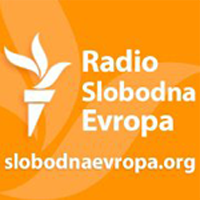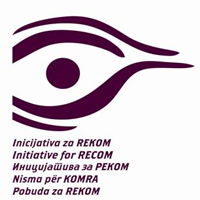(srpski) Svjedoci zločina ‘Crvenih beretki’ u Doboju: Tukli su nas i tjerali da lajemo kao psi

Sorry, this entry is only available in srpski.


Sorry, this entry is only available in srpski.

 On June 21st 2017, the Humanitarian Law Center (HLC) filed a criminal complaint with the Office of the War Crimes Prosecutor of the Republic of Serbia (OWCP) against Radojica Božović, a former high-ranking member of the Red Berets, as well as against two other members of this unit, for crimes committed in Doboj (Bosnia and Herzegovina) in the period from May to August 1992.
On June 21st 2017, the Humanitarian Law Center (HLC) filed a criminal complaint with the Office of the War Crimes Prosecutor of the Republic of Serbia (OWCP) against Radojica Božović, a former high-ranking member of the Red Berets, as well as against two other members of this unit, for crimes committed in Doboj (Bosnia and Herzegovina) in the period from May to August 1992.
The persons charged are suspected of the expulsion of several hundred Bosniaks from the village of Bukovačke Čivčije (Municipality of Doboj) in the period from May to August 1992, killing one member of the Croatian National Guard, robbing civilians, and abusing and torturing prisoners in the Doboj district prison.

Sorry, this entry is only available in srpski.


On June 14th 2017, after several months of delay, the European Parliament (EP) adopted a Resolution on the European Commission 2016 Report on Serbia. The Report presents a regular annual review of the progress of Serbia towards fulfilling the criteria for accession to the European Union, and it relies on the annual report of the European Commission on Serbia. The Members of the European Parliament (MEPs) urged Serbia to strengthen cooperation with neighbouring countries and encourage good neighbourly relations, as well as to invest greater effort in resolving bilateral issues. In terms of war crimes, Serbia is expected to eliminate impunity, accept responsibility and take very concrete steps towards overcoming the legacy of the armed conflicts in the former Yugoslavia.


In June 2017, the European Commission (EC) published its second semi-annual overview of the state of play as regards meeting the criteria for Serbia’s accession to the European Union (EU), as defined in Chapter 23 (Judiciary and Fundamental Rights). In accordance with the EU General Position on Accession Negotiations with the Republic of Serbia, the interim benchmarks for Chapters 23 have been established, and when it comes to war crimes, a number of measures are envisaged that will enable the EU recommendations for more effective domestic trials to be addressed in an adequate manner. The measures of the Government of the Republic of Serbia for the implementation of these recommendations are defined in the Action Plan for Chapter 23, and this semi-annual report shows whether and how much progress Serbia has made in their implementation. The EC has concluded that, despite the fact that more than a year has passed since the adoption of the Action Plan for Chapter 23 (adopted at the end of April 2016), implementation is still in many cases at an early or very early stage.


In May 2017, in the course of just a few days, 50,000 citizens of Sarajevo, Banja Luka, Pristina, Zagreb, Belgrade, Nis, Presevo, Novi Sad, Zrenjanin, Subotica and Novi Pazar signed the petition calling on the leaders of post-Yugoslav states to conclude an official agreement to establish RECOM as part of the Berlin Process. The aim of the campaign was to inform the public about the obligations of states and political leaders in the region undertaken in the official declarations signed at the Summit of Western Balkan Leaders in Berlin (2014), Vienna (2015) and Paris (2015), calling for “concrete steps to be taken by Western Balkan leaders towards lasting reconciliation in the region.”

Sorry, this entry is only available in srpski.